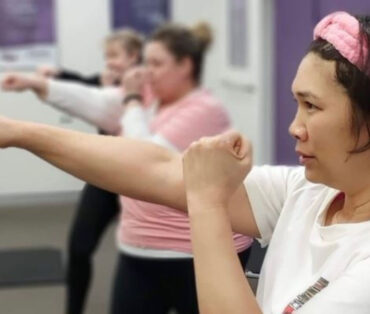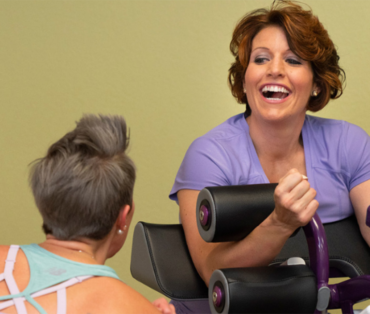7 Ways to Stay Healthy All Winter
Between the limited sunlight, cooler temperatures, and shorter days, winter can be a real drag. Not to mention all the extra illness. It seems no matter where you turn in winter months, someone is coughing, sneezing, or talking about a recent bought of stomach upset.
The natural question arises: why do we get sick so much more often in the winter? There are a few possible reasons. First, we tend to spend more time indoors in the winter, with the windows shut. So, we are more likely to breathe the same air as someone who is fighting a cold or the flu. Secondly, because the days are shorter, we get less sunlight, which equals lower levels of vitamin D. Lower levels of vitamin D can make our immune systems less efficient at fighting off viruses and bacteria that come our way. And finally, some viruses just survive better in the cold. Influenza and norovirus, the most common cause of gastroenteritis, are two examples.1
So, now that you know why you are more susceptible to getting sick in the winter, here are some health tips to help you stay well:
Wash your hands
It’s so simple, yet so effective. The easiest way to prevent getting sick is to avoid the germs in the first place by washing them off your hands. According to the United States Centers for Disease Control and Prevention, hand-washing prevents 23 to 41 percent of diarrhea cases and 16 to 21 percent of colds.2 Think about all the things you touch—door handles, shopping trolleys, lift buttons, the list goes on and on. All these items can harbor bacteria and viruses, especially in winter. To rid your hands of bugs that can make you sick, rub them together with hot water and soap for at least 30 seconds. Don’t forget the back of your hands, in between your fingers, and under your fingernails. Then dry your hands completely.3
Take vitamin D
As we mentioned, vitamin D levels tend to be lower in the winter because we get less sunlight; exposure to the sun’s rays helps our bodies make this important immune-boosting vitamin. To keep your levels in the optimum range of 50 to 100 mg/mL, you may need to take a supplement. Your health care provider can order a simple blood test to get your level. If it’s low, ask your provider about taking a vitamin D supplement each day to keep your immune system on high alert.4
Clean your phone
Think of all the places and ways you handle your phone. So, it should come to no surprise that one study found the average cell phone contains 10 times more bacteria than a toilet seat.5 To prevent your phone from making you sick, avoid taking it into the bathroom and regularly clean it with a combination of 60 percent water, 40 percent rubbing alcohol. Dip a cloth in the solution and then rub it gently over your phone.
Get moving to get rid of germs
Engaging in a regular full body workout like the Curves circuit will help keep you from getting sick in several possible ways. A regular workout plan may:
- Help flush viruses and bacteria out of your lungs, before they have a chance to make you sick
- Cause a rise in body temperature that prevents bacteria from growing and helps the body fight infection (like a mini fever)
- Lead to changes in antibodies and white blood cells that make them more efficient at identifying and fighting viruses and bacteria
- Harness the mental health benefits of exercise and lower stress. Less stress may equal better immunity.6
Breathe out
A study done at the University of Maryland found that the air around people with influenza contained contaminated droplets.7 So, if you know you’re standing near someone who is ill, or if someone is coughing or sneezing near you at work or as you’re sweating it out during your full body workout at the gym, politely move away. Avoid breathing in and slowly exhale until you have created about 10 feet of distance between you and the sick person.8
Get your zzz
It’s always important to get adequate sleep so you can perform at your best and of course, crush your whole body workout at Curves. But it’s especially important to get the recommended seven to nine hours of shuteye during the winter months. Results of a European study found that sleep deprivation was equally as taxing on the immune system as physical stress.9 To get a good night’s rest, first, make sleep a priority and give yourself enough time for the seven to nine hours you need. Other health tips when it comes to sleep: engage in a regular workout plan, don’t nap, turn off all screens at least one hour before bedtime, and limit caffeine, large meals and alcohol a few hours before bed.10 These Curves articles are packed with tips that can help you the sleep you need to stay healthy in winter:
- Rest Right and Feel Great
- 10 Tips for Getting Better Sleep
- Up Late and Sleeping In—Are You a Night Owl?
Nourish your gut
Your gut and your immune system are closely tied. In fact, 80 percent of your immune system lives in the microbiome in your gut. A healthy eating plan can help keep your microbiome—and therefore, your immunity—robust. Eat fresh fruits and vegetables, including dark, leafy greens, berries, raw garlic, and onions. Also consider eating foods that contain probiotics and prebiotics, which add beneficial bacteria. These include yogurt, kombucha, kefir, and sauerkraut.11 Spices such as cumin, turmeric, cinnamon, and oregano can also boost your immune system because they naturally help fight invaders.12
It’s always a good practice to avoid colds, flu, and other illnesses for good general health. Plus, you will have more healthy days to spend next to your ladies at Curves, engaging in your beloved workout plan! Curves offers a variety of exercise classes for women — high-intensity women’s boxing classes and cardio classes, medium to low-intensity women’s fitness classes, and low-intensity women’s balance classes. Each class is designed to to give you an effective total body workout in just 30 minutes! For more information about Curves, visit ‘Why Curves‘.
Sources
2 Centers for Disease Control and Prevention
4 Harvard School of Public Health
6 US National Library of Medicine
7 WebMD







